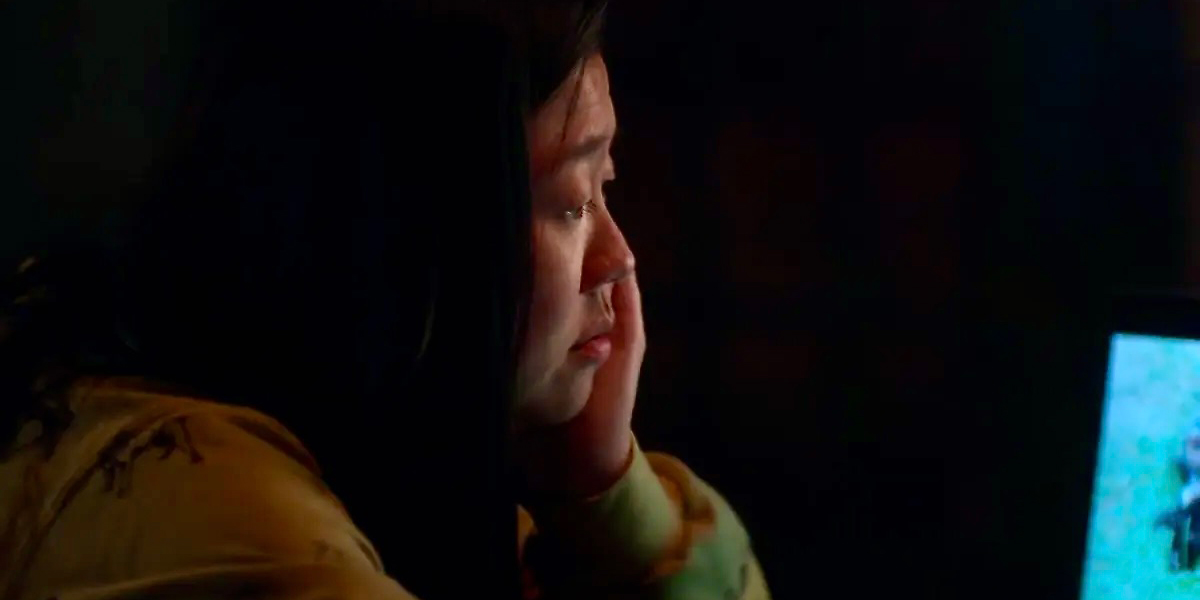Look at you! You made it to the end of another week (and some weeks that is harder to do than others, so congratulations to you). The biggest television news this week is the Emmys, which had historic levels of wins by queer Black people and that’s bitterwseet, but great. Sai also interviewed the composers of The L Word: Generation Q’s musical episode about being Emmy nominated (they didn’t win, but it’s still pretty freaking cool!)
If you saw Mean Girls last weekend, you might appreciate a run down every moment that’s gayer than the original. Drew is still keeping you up-to-date on Drag Race, and she’s also got some feelings on Jodie Foster’s True Detective. On the reality tv beat, Anya is ready with your weekly recap of Traitors. Ted‘s got a queer cousin, crass humor, and I’m assuming still has a talking teddy bear at the center of it all? Valerie Anne’s got you covered. Valerie also watched Death and Other Details, and whew does it have a lot of queer women on its murderous cruise. And speaking of this trend, SkyMed has freak accidents and also a lot of queer characters.
Sort Of is back for its last season on Max and Drew wrote one of the greatest queer comedies we’ve ever seen a send off. Valerie watched Hazbin Hotel, a musical extravaganza about a bubbly queer princess of hell (what a description!!). Stef wants to talk about Emma Stone’s award-buzzy Poor Things and what it has to say about the monsters we all know.
And finally, AUTOSTRADDLE IS BACK AT SUNDANCE!! Drew’s going to have daily reviews for you, starting with Justice Smith’s I Saw the TV Glow, easily one of the hottest queer films at the festival this year.
Good Trouble 513: “Hanging by a Moment”
Written by Natalie

For the first time since he blindsided her by voting against the women’s center, Councilman Jack Hauss approaches Malika in the hall. She calls him out for lying about his vote and he takes great umbrage to her characterization. He chastises her for not understanding how things work and reminds her that she shouldn’t risk offending people whose help she might need down the line. Both Malika and I are annoyed by his smugness, but I’ve been around legislative politics enough to know that he’s right: there are no permanent allies or enemies. Still, the interaction grates on Malika and, with Hauss on the verge of becoming Council president, she sets out to derail his candidacy.
She sets out to expose Hauss’ real feelings on policing and turn public sentiment against him. She enlists Tracy in her efforts, who reaches out to an assistant in Hauss’ office to get his schedule. Because she’s the more senior of the pair, Tracy knows that their fingerprints can’t be on any effort to upset Hauss so, instead of approaching him directly at a local meeting, she recruits a friend to be their stand-in. Malika feeds the stand-in information and she holds Hauss’ feet to the fire. Instead of confronting Malika directly about her suspected antics, Hauss takes his complaints to Lucia.
Malika’s boss is far more forgiving than most would be in this situation. She insists that Malika’s vendetta against Hauss will only hurt them both, especially once he becomes president of the Council. Malika still approaches politics with the perspective of an activist — someone who can be pure hearted — but Lucia reminds her that, in politics, “sometimes have to bend [your values] to achieve the greater good.”
Later, Hauss crosses path with Malika again and offers her a deal: if she agrees to stop crashing his community meetings and “spreading untruths” about his stances, he’ll promise to push her women’s center proposal through once he becomes City Council president. Malika’s rightly skeptical of taking Hauss at his word — after all, he’s lied to her once before — but he commits to putting his promise in writing this time. If she backs off, she’ll have her women’s center in just a couple of months.
Meanwhile, Alice returns to the writers’ room with a new determination to show some brave leadership. She admits that they failed with the first draft of their script and that the network is in search of fresher jokes. Morrie, Murray and Morty are committed to the bit but, in the spirit of compromise, are willing to change all their jokes about gout to jokes about eczema or osteoporosis. Alice tries to test out some younger skewing jokes, as they make their way through the ferret clips, but none of her colleagues grasp her humor. The guys stubbornly cling to the style of jokes that built the show, but Alice reminds them that those same jokes might now cost them their jobs. Frustrated with their inability to compromise, Alice sends the team home early and ends up working on the script alone.
She returns to the writers’ room the next day having submitted all of her rewrites and, of course, the network loves it. Their boss touts the “fresh and funny” rewrite as exactly what the network is looking for and Alice accepts the plaudits on behalf of the team. Morrie, Murray and Morty seem just as annoyed as I am that, five seasons in, Alice still doesn’t have the confidence of her convictions. Morty insists that, in order to be a good leader, Alice can’t just step in and do everything on her own; she has to demand that the rest of them rise to meet the challenge. She does and the guys promise to follow wherever Alice leads them.







